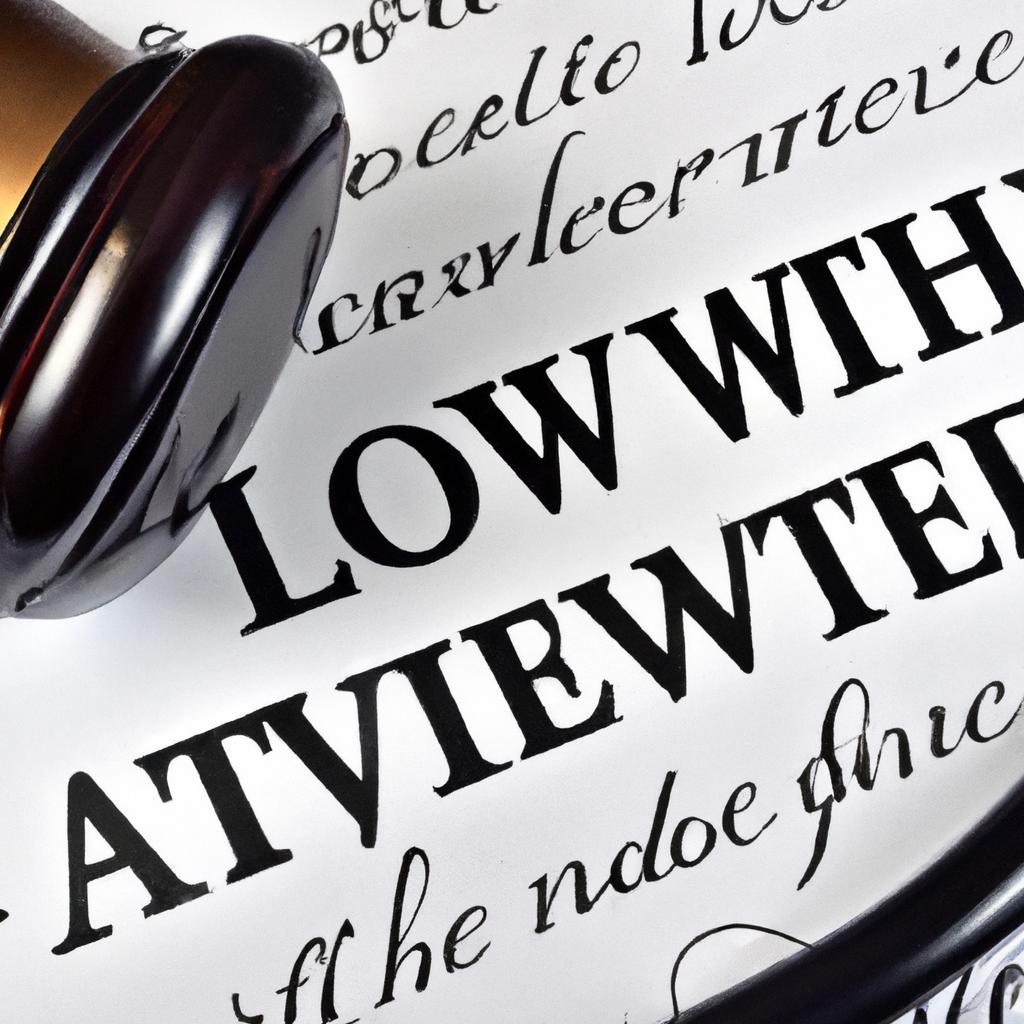In the intricate realm of estate planning, a durable power of attorney stands as a powerful tool, granting someone the authority to make decisions on your behalf in the event of incapacity. While this document can greatly ease the burden of managing financial and legal affairs, there are limitations to its scope. At Morgan Legal Group in New York City, our team of experienced lawyers delves into the nuances of what a durable power of attorney cannot do, shedding light on the restrictions that accompany this crucial legal instrument. Understanding these boundaries is key to crafting a comprehensive estate plan that truly safeguards your interests.
Rights and limitations under a durable power of attorney agreement
When establishing a durable power of attorney agreement, it is essential to understand the rights and limitations that come with it. While a durable power of attorney provides the designated agent with broad authority to act on behalf of the principal, there are certain actions that the agent cannot take. It is important to be aware of these limitations to ensure that the agent does not overstep their bounds.
One of the things a durable power of attorney cannot do is make decisions that go against the wishes of the principal. The agent is legally obligated to act in the best interests of the principal and must follow any instructions outlined in the agreement. Additionally, the agent cannot make decisions regarding matters that are not specified in the power of attorney document. It is crucial for both parties to clearly define the scope of the agent’s authority to prevent any misunderstandings or conflicts down the line.

Financial transactions that fall outside the scope of a durable power of attorney
In addition to the limitations on financial transactions mentioned above, there are several other important areas where a durable power of attorney may not be able to act:
- Signing a new will or changing an existing will
- Making gifts on behalf of the principal
- Making decisions about the principal’s healthcare or medical treatment
It is crucial to understand these limitations when creating a durable power of attorney to ensure that the document accurately reflects the principal’s wishes and best protects their interests.

Healthcare decisions and medical treatments not covered by a durable power of attorney
When it comes to healthcare decisions and medical treatments, a durable power of attorney can be a powerful tool for individuals to plan for their future care. However, there are certain limitations to what a durable power of attorney can do in these situations. It is important for individuals to understand these limitations to ensure that their wishes are carried out effectively.
One key aspect to note is that a durable power of attorney does not cover certain healthcare decisions and medical treatments. Some examples of what a durable power of attorney cannot do include:
- Refuse life-sustaining treatment: A durable power of attorney cannot be used to refuse life-sustaining treatment on behalf of the individual.
- Make decisions about mental health treatment: In some cases, a durable power of attorney may not cover decisions related to mental health treatment.

Important considerations when creating a durable power of attorney document
When creating a durable power of attorney document, it is crucial to understand the limitations of this legal instrument. While a durable power of attorney grants broad powers to an appointed agent, there are certain actions that this document cannot authorize. It is essential to be aware of these restrictions to ensure that your wishes are accurately reflected in your estate planning.
**What a durable power of attorney cannot do:**
- Make decisions regarding healthcare or end-of-life care
- Create or change a will
- Act beyond the scope of the powers specifically granted in the document
Q&A
Q: What is a durable power of attorney?
A: A durable power of attorney is a legal document that allows a designated individual to make decisions on behalf of another person, typically in the event of incapacitation.
Q: What can a durable power of attorney do?
A: A durable power of attorney can grant the designated individual the authority to make financial, legal, and healthcare decisions on the behalf of the person granting the power of attorney.
Q: What can a durable power of attorney not do?
A: A durable power of attorney does not grant the designated individual the authority to make decisions that are not explicitly outlined in the document, to act beyond the designated scope of authority, or to make decisions after the death of the person granting the power of attorney.
Q: Can a durable power of attorney be used to override the wishes of the person granting the power of attorney?
A: No, a durable power of attorney is intended to carry out the wishes and best interests of the person granting the power of attorney, not to act against their wishes or make decisions that go against their values or beliefs.
Q: Can a durable power of attorney be revoked?
A: Yes, a durable power of attorney can be revoked at any time by the person granting the power of attorney as long as they are of sound mind and able to make decisions for themselves.
To Conclude
In conclusion, while a durable power of attorney can provide significant authority to a trusted individual to make decisions on your behalf, it’s important to remember that there are limitations to what they can do. Understanding these limitations can help ensure that you have a clear understanding of the scope of power you are granting and can make informed decisions when creating your legal documents. By being proactive and thoughtful in considering these limitations, you can help protect your interests and ensure that your wishes are carried out in the event of incapacity.

